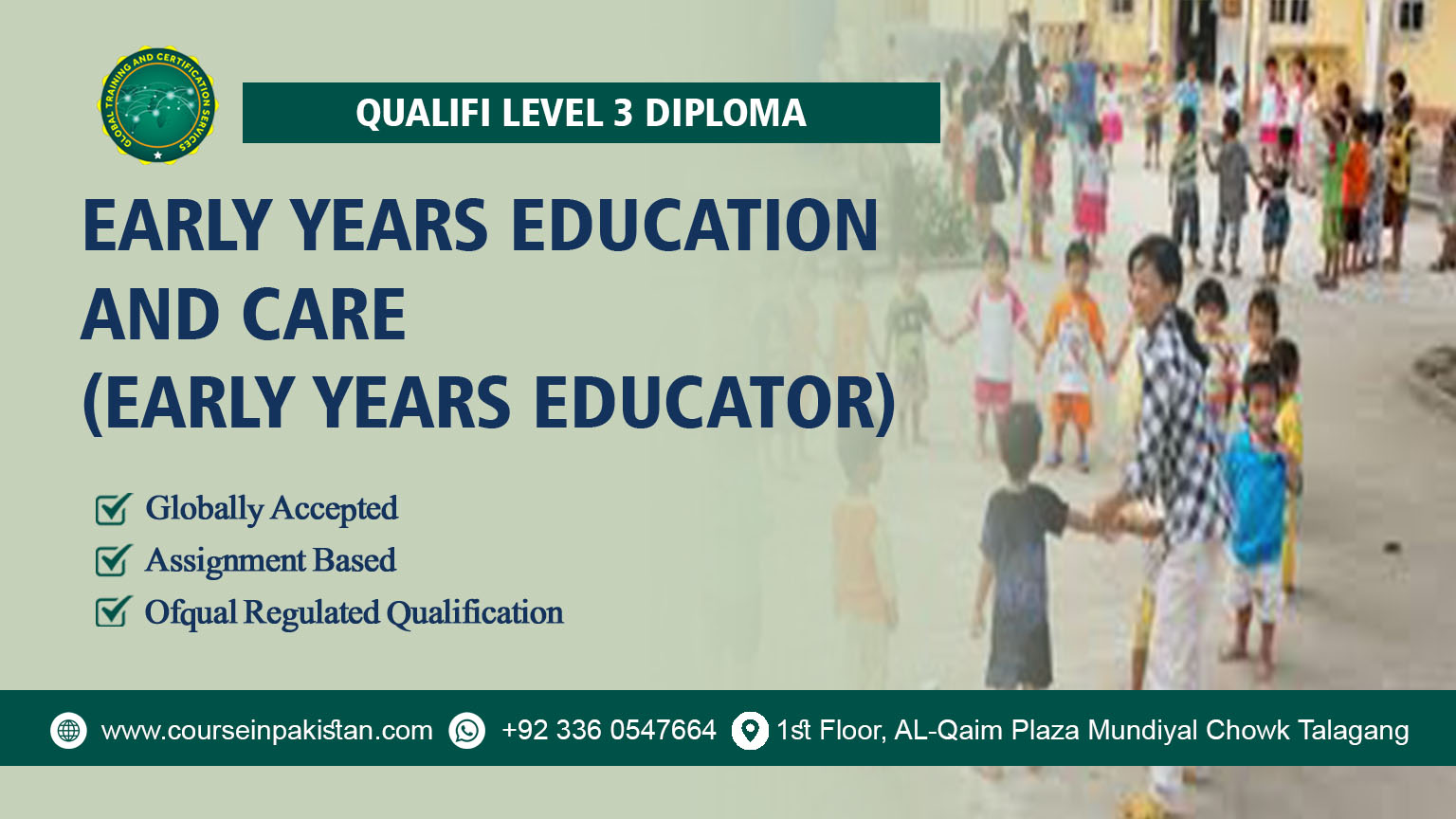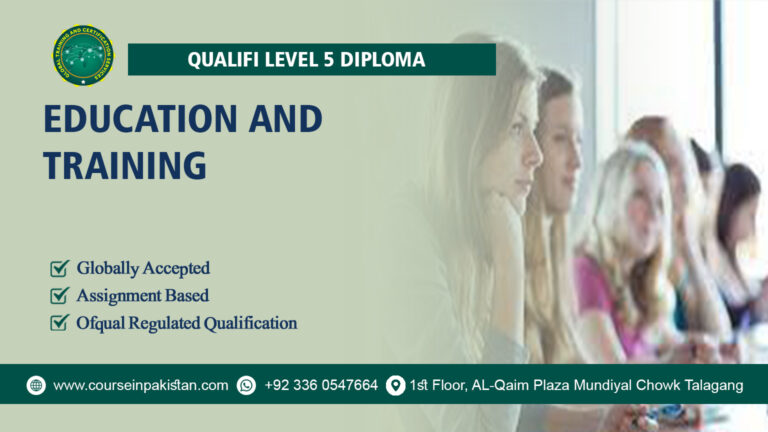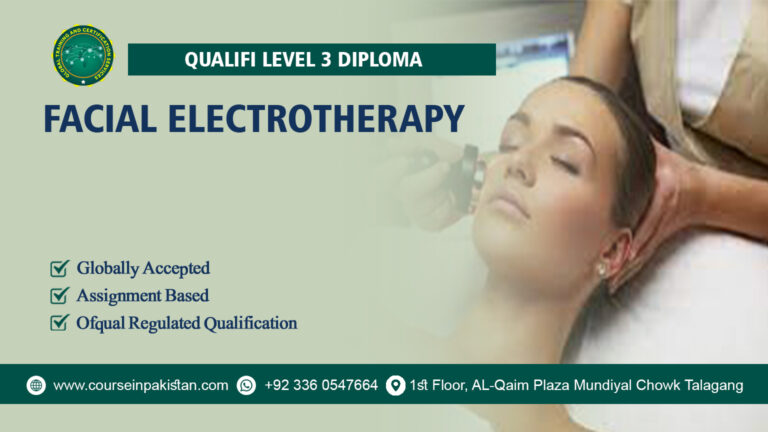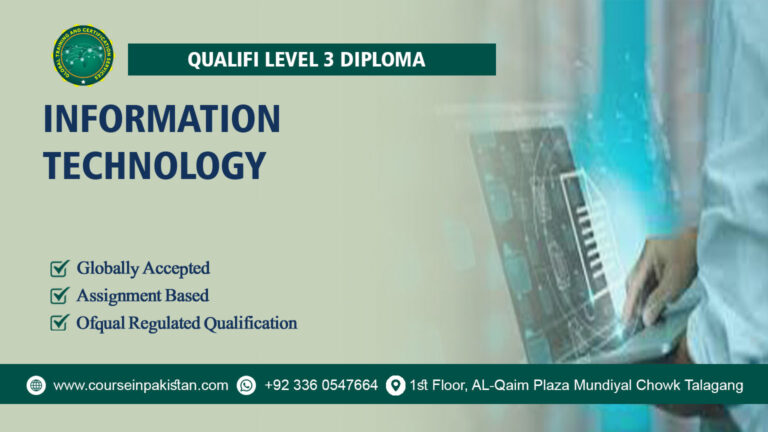
Qualifi Level 3 Diploma in Early Years Education and Care (Early Years Educator)
Embarking on a career in early years education and care can be incredibly rewarding and impactful. The Qualifi Level 3 Diploma in Early Years Education and Care (Early Years Educator) is designed to equip individuals with the necessary knowledge and skills to work effectively with young children, providing a solid foundation for their development and learning.
This diploma course covers a wide range of topics essential for early years educators, including child development, safeguarding, health and well-being, partnership working with parents and other professionals, and the promotion of diversity and inclusion. It combines theoretical knowledge with practical experience to ensure learners are prepared for the dynamic and challenging environment of early years education.
Course Benefits
- Comprehensive Knowledge: Gain a deep understanding of child development theories and early years education practices.
- Practical Skills: Develop hands-on skills through work placements or practical assessments.
- Career Opportunities: Qualify for various roles such as nursery practitioner, early years educator, preschool teacher, or childminder.
- Professional Recognition: Achieve a recognized qualification that meets the Early Years Educator criteria as set by the UK government.
Course Study Units
The course typically includes study units such as:
- Supporting healthy lifestyles for children through food, nutrition and exercise
Supporting physical care routines for children and for unwell children
Promoting children’s emotional well-being, social and emotional development
Understanding the needs of the mother and baby pre-conception, during pregnancy and the first year of life
The role of the Early Years practitioner
Legislation relating to Early Years practice
Working in partnership
Supporting children through play in Early Years
Developing the literacy, mathematical and communication skills of children
Understand the needs of the child in preparing for school
Understanding children’s cognitive development
Promoting the physical development of children
Supporting children with additional needs
Using studies and tools to promote the development of children
Professional development for Early Years Educators
By the end of the course, learners will:
-
Supporting healthy lifestyles for children through food, nutrition and exercise
- Understand the principles of healthy nutrition and its impact on children’s growth and development.
- Plan and implement activities that promote healthy eating habits and physical activity among children.
- Evaluate the effectiveness of strategies to support healthy lifestyles in early years settings.
Supporting physical care routines for children and for unwell children
- Demonstrate competence in carrying out physical care routines such as diaper changing, toileting, and personal hygiene.
- Implement appropriate procedures for supporting children who are unwell, including administering medication and monitoring health conditions.
- Ensure the physical comfort and well-being of all children under care.
Promoting children’s emotional well-being, social and emotional development
- Identify factors that contribute to children’s emotional well-being and development.
- Apply strategies to support children in managing their emotions and developing positive relationships with peers and adults.
- Evaluate the effectiveness of interventions designed to promote social and emotional development in early years.
Understanding the needs of the mother and baby pre-conception, during pregnancy and the first year of life
- Recognize the physical, emotional, and nutritional needs of mothers before conception, during pregnancy, and in the first year post-birth.
- Provide appropriate support and advice to expectant mothers to promote healthy pregnancies and early childhood development.
- Collaborate with healthcare professionals to ensure holistic care for mothers and babies.
The role of the Early Years practitioner
- Define the responsibilities and duties of an Early Years practitioner within legal and regulatory frameworks.
- Reflect on personal practice and continuously strive for professional development.
- Engage in effective communication and collaboration with colleagues, families, and external stakeholders.
Legislation relating to Early Years practice
- Understand key legislation, policies, and guidelines relevant to Early Years practice.
- Ensure compliance with legal requirements and safeguarding procedures.
- Advocate for children’s rights and well-being within the legal framework.
Working in partnership
- Establish positive relationships with families, colleagues, and external agencies to support children’s holistic development.
- Collaborate effectively with other professionals to meet the diverse needs of children and families.
- Communicate openly and respectfully, valuing diverse perspectives and contributions.
Supporting children through play in Early Years
- Recognize the importance of play in children’s learning and development.
- Create an enabling environment that stimulates imaginative, physical, and social play.
- Facilitate and enhance children’s play experiences to promote holistic development.
Developing the literacy, mathematical and communication skills of children
- Plan and implement activities that promote literacy and numeracy skills appropriate to children’s developmental stages.
- Use effective communication techniques to enhance language development and expression.
- Assess and support individual children’s progress in literacy, numeracy, and communication skills.
Understand the needs of the child in preparing for school
- Identify the skills and knowledge children need to transition successfully to school.
- Implement strategies to support children in developing school readiness skills.
- Collaborate with schools and families to facilitate smooth transitions for children entering formal education.
Understanding children’s cognitive development
- Explain theories and stages of cognitive development in early childhood.
- Observe and assess children’s cognitive abilities and challenges.
- Plan activities that stimulate cognitive development and problem-solving skills.
Promoting the physical development of children
- Understand the stages of physical development from birth through early childhood.
- Provide opportunities for children to develop gross and fine motor skills through play and structured activities.
- Evaluate the impact of physical development activities on children’s overall well-being.
Supporting children with additional needs
- Identify different types of additional needs that children may have and their impact on learning and development.
- Adapt environments and activities to meet the specific needs of children with disabilities or additional needs.
- Collaborate with specialists and families to provide inclusive and supportive care for all children.
Using studies and tools to promote the development of children
- Utilize assessments and observations to inform planning and support individual children’s development.
- Implement evidence-based strategies and interventions to address developmental challenges.
- Reflect on the effectiveness of interventions and adjust practices to optimize children’s learning and growth.
Professional development for Early Years Educators
- Engage in continuous professional development (CPD) to enhance knowledge, skills, and practice.
- Reflect on personal strengths and areas for growth as an Early Years Educator.
- Demonstrate a commitment to professional ethics, standards, and lifelong learning in the field of early childhood education.
These learning outcomes illustrate the depth and breadth of knowledge and skills that learners will gain through the Qualifi Level 3 Diploma in Early Years Education and Care (Early Years Educator), preparing them to make a positive impact on the lives of young children and their families.
Who is This Course For?
This course is ideal for individuals who are passionate about working with young children and are committed to making a positive impact on their early years development. It is suitable for school leavers, career changers, or anyone already working in early years settings who wants to formalize their qualifications.
Future Progression for This Course
Upon completion of the Qualifi Level 3 Diploma, learners can progress to:
- Level 4 Qualifications: Advance their knowledge and skills with higher-level diplomas or foundation degrees in early years education.
- Employment: Enter the workforce as qualified early years educators in nurseries, preschools, or as childminders.
- Continuous Professional Development (CPD): Engage in further training and development to enhance their expertise and career prospects.
the Qualifi Level 3 Diploma in Early Years Education and Care (Early Years Educator) offers a solid educational pathway for individuals interested in shaping the futures of young children. It combines theoretical understanding with practical experience, preparing learners to meet the challenges and rewards of working in early years settings. Whether you’re starting out in your career or looking to advance, this course provides a strong foundation for a fulfilling career in early childhood education.






